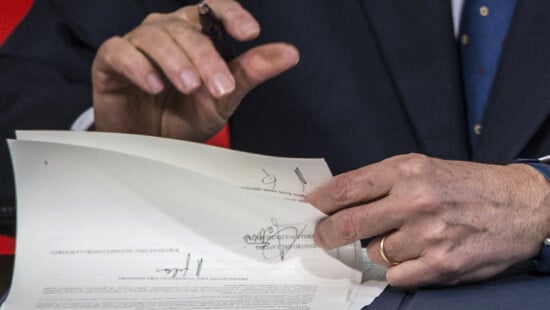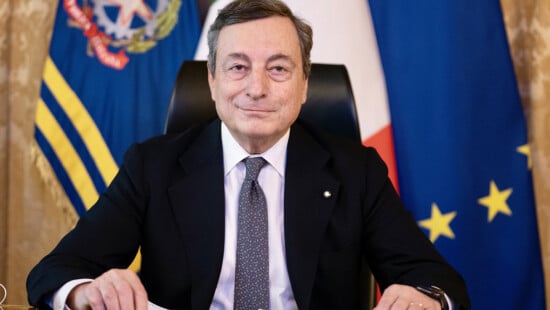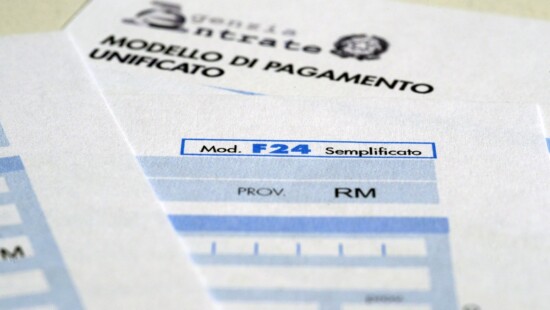In Polonia il governo di Morawiecki traballa per lo scontro fra sovranisti ed europeisti. Kaczyński, alleato di Giorgia Meloni a Bruxelles, nel mirino per le simpatie filorusse e filocinesi. Ecco cosa dice il terremoto polacco della fortezza sovranista in Ue
Archivi
Il timor di firma e l'abuso di ufficio. Il punto di Balducci
Il fenomeno noto come la “paura di firmare” sembra essere una delle cause della lentezza nella realizzazione di opere pubbliche. Per uscire dal blocco, più che affievolire le sanzioni bisogna rendere minimo l’ambito di discrezionalità del funzionario, codificando il processo in maniera ineludibile
Consiglieri a palazzo. Perché Draghi chiama Aresu, Sileoni e Genovese
Alessandro Aresu, Serena Sileoni e Simona Genovese sono i nuovi consiglieri di Mario Draghi chiamati a Palazzo Chigi dal capo di gabinetto Antonio Funiciello. Il metodo Machiavelli si avvale di tecnici a tutto tondo, tra accademia, editoria e politica. Ecco chi sono
Sanatoria fiscale? Se proprio si deve, con la condizionale. La versione di Giacalone
Se proprio si deve fare, se proprio perdonare i disonesti è il solo modo per perdonare gli incapaci, posto che si tratta di colpevole arretrato, almeno due condizioni. Davide Giacalone spiega quali
Il messaggio (geopolitico) del viaggio del papa in Iraq secondo Perteghella
“Se pensiamo a cosa è stato l’Iraq negli ultimi vent’anni, il fatto che ora un Pontefice possa farvi visita è un grande messaggio di speranza”. Conversazione con Annalisa Perteghella, ricercatrice del programma Medio Oriente dell’Ispi
La Cina vuole l’Artico. La storia dell’aeroporto di Kemijarvi
La Difesa finlandese ha bloccato la Cina, che tramite un istituto di ricerca voleva prendere il controllo di un aeroporto sull’Artico
Ion acquisisce Cedacri. L'Italia quando vuole fa sul serio
L'Italia quando vuole fa sul serio. L'acquisizione di Cedacri da parte di Ion Investment Group rappresenta un’occasione strategicamente importante per il Paese. Il fondo FSI di Maurizio Tamagnini, che ha investito in Cedacri nel 2018, ha ben colto il potenziale. Cedacri come spiega oggi su Il Sole 24 ore Carlo Festa è "il principale operatore italiano nel settore del Core…
La poesia cosmica di Francesco coinvolge tutti da Ur
Oggi, a Ur, dove ebrei, cristiani e musulmani trovano la loro radice comune nell’uomo “amico di Dio”, Abramo, l’uomo che ha avuto fiducia e ha risposto con fiducia, ha trovato la più bella, poetica ed alta spiegazione di tutto l’ordito dell’enciclica “Fratelli tutti”
Bettino Craxi tra noi. La riflessione di Malgieri
Federico Bini ha curato un volume di interviste ed interventi su Bettino Craxi, prefato da Zeffiro Ciuffoletti ed introdotto da Francesco Forte. Una riflessione sullo statista ed un giudizio sulla sua azione politica alla quale hanno contribuito Carlo Tognoli, l’ex-sindaco di Milano appena scomparso, Valdo Spini, Gennaro Acquaviva, Gianfranco Pasquino e Gennaro Malgieri del quale pubblichiamo un estratto del suo contributo dal libro “Un passo dietro Craxi” (Edizioni WE, pp.90, s.I.p.)
Cari Zinga&Co, date tregua a SuperMario. Il mosaico di Fusi
Un po’ stordite dal cambio di fase, le forze politiche continuano a muoversi sul crinale del tatticismo senza capire che l’agenda Draghi, per funzionare, ha bisogno di un appeasement. Da Zingaretti al centrodestra, dovrebbero farci un pensiero. Il mosaico di Carlo Fusi

















